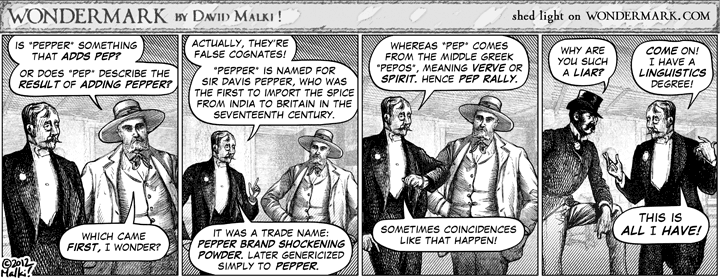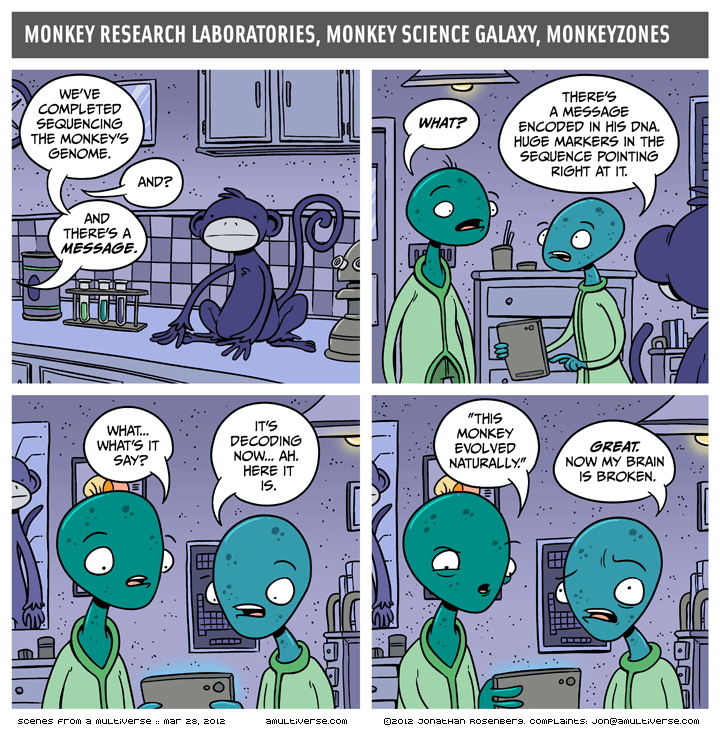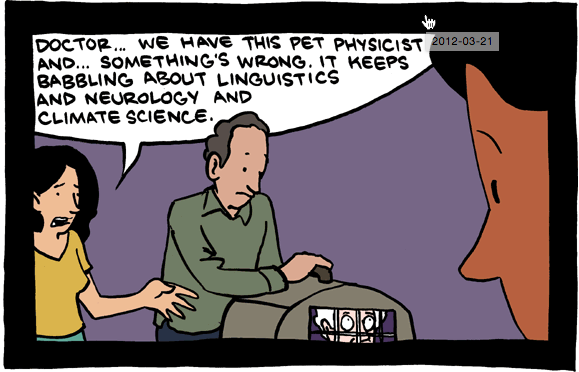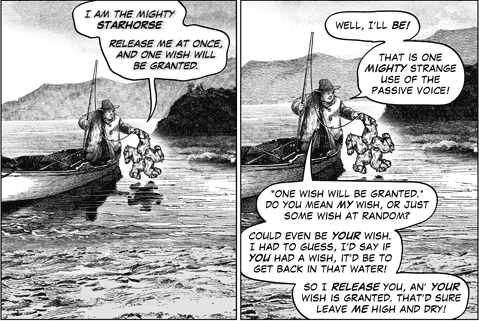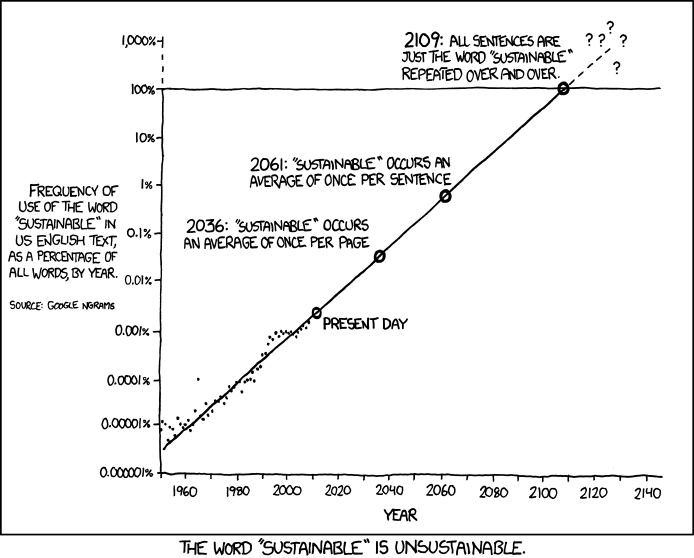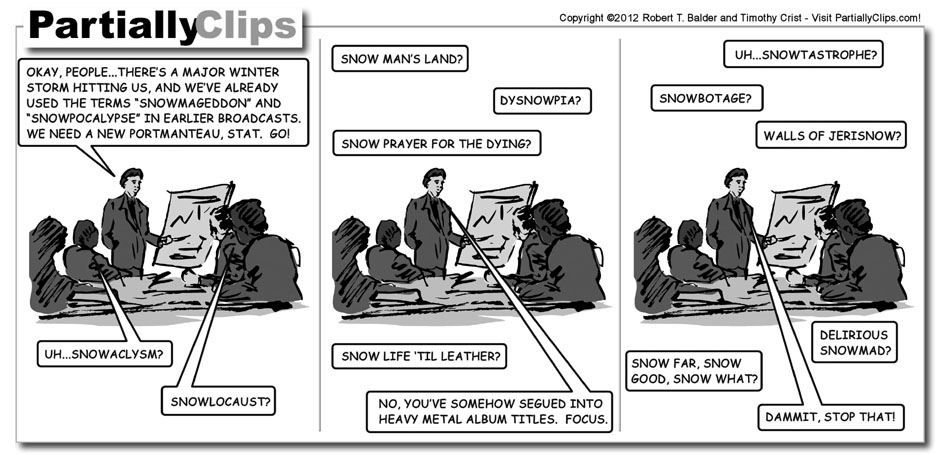Archive for Linguistics in the comics
Intelligent lack of design
The most recent Scenes From a Multiverse cleverly combines the intelligent design controversy with (an indirect form of) the Cretan liar's paradox:
Non-restrictive 'that'
In the most recent Between Failures, an nice example of a non-restrictive relative clause (or a supplementary relative clause, as Geoff Pullum would prefer) introduced by that rather than which:
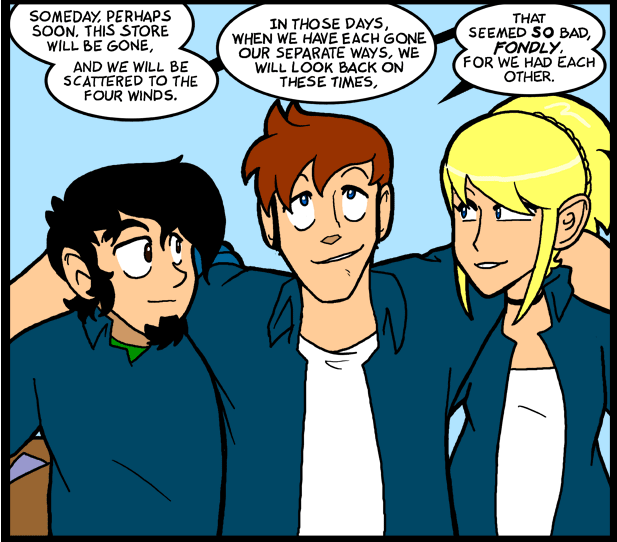
A non-mathematical theory of communication
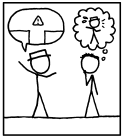 According to Claude Shannon, "A Mathematical Theory of Communication", Bell System Technical Journal 1948:
According to Claude Shannon, "A Mathematical Theory of Communication", Bell System Technical Journal 1948:
The fundamental problem of communication is that of reproducing at one point either exactly or approximately a message selected at another point. Frequently the messages have meaning; that is they refer to or are correlated according to some system with certain physical or conceptual entities. These semantic aspects of communication are irrelevant to the engineering problem. The significant aspect is that the actual message is one selected from a set of possible messages.
Rather than abstracting away from the fact that communicated messages may have meaning, this recent xkcd strip explores the idea that the "message selected at another point" may have little or no impact on the message that is received:
Read the rest of this entry »
"Passive voice" in the comics
Panels two and three (of six) from David Malki's most recent Illustrated Jocularity, "The Wish of the Starhorse":
Read the rest of this entry »
Words for 'meh'
The current strip over at Dinosaur Comics starts with these two panels:
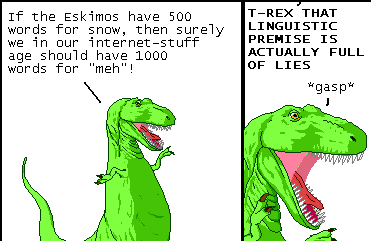
And Ryan's note says
T-Rex's sentence in the first panel is a snowclone! There's a bunch of them here on Language Log, which is also just about where the word originated! NOW YOU KNOW
Transitive "disappear"? Not in this country!
The latest installment of Ruben Bolling's political cartoon "Tom the Dancing Bug" takes the form of a satirical information sheet, "So… You've Been Indefinitely Detained!" Among the "Frequently Asked Questions, Which You'll Have Plenty of Time to Contemplate," is this one:
Q. Have I been disappeared?
A. People aren't "disappeared" in America! Only in lawless dictatorships can intransitive verbs be used to make passive forms.
Read the rest of this entry »
I can't do that, Dilbert
Dilbert for 12/17/2011 suggests that we may be in more danger from smartphone apps than from autonomous warbots — not Arnold Schwarzenegger as the Terminator, but Rowan Atkinson as the Administrator:
Read the rest of this entry »
Well ADJECTIVE
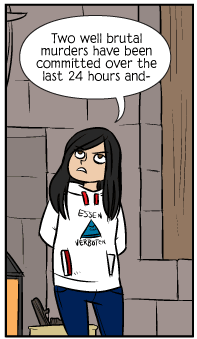 Today's installment of John Allison's web-comic short story "Murder She Writes" features the youthful amateur detective Charlotte Grote ("Lottie") using well as an intensifier of the adjective brutal.
Today's installment of John Allison's web-comic short story "Murder She Writes" features the youthful amateur detective Charlotte Grote ("Lottie") using well as an intensifier of the adjective brutal.
This is a traditional usage — the OED's sense 16.a. for well, "With adjectives. Formerly in common use, the sense varying from ‘fully, completely’ to ‘fairly, considerably, rather’", has citations going back to the 9th century:
c888 Ælfred tr. Boethius De Consol. Philos. xxv, Seo leo, þeah hio wel tam se,‥heo forgit sona hire niwan taman.
c900 tr. Bede Eccl. Hist. iv. ii. 258 Wæron her stronge cyningas and wel cristene.
But now well ADJ is rare except in the cases listed in sense 16.b. "In modern use esp. in well able, well aware, well worth, well worthy", a list that obviously doesn't include "well brutal". (Well is freely used as a modifier on past participles, as in "a well-cooked egg", but that's another matter.)
Read the rest of this entry »
